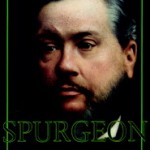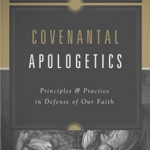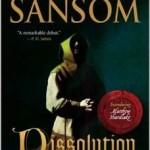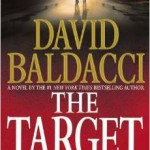I love to read. By God’s grace I am a pretty fast reader; I usually read a couple books each week. I find it helpful to summarize my thoughts on each book and I offer those thoughts in the hope that you will be encouraged to either read or pass over the given title.
 Spurgeon: A New Biography by Arnold Dallimore. Tomorrow night I hope to preach a biographical sermon on the Prince so I reread Dallimore’s work in preparation. This simply is the finest introduction to the great Spurgeon. The prose flows nicely and while the book consistently celebrates the great preacher, Dallimore manages to steer clear of hagiography. Pithy quotations and lively stories saturate the work, making almost every page “edifyingly readable.” After reading Dallimore, I’d move on to Lewis Drummond’s The Prince of Preachers, and then feast on Spurgeon’s magisterial two-volume autobiography. Tolle lege!
Spurgeon: A New Biography by Arnold Dallimore. Tomorrow night I hope to preach a biographical sermon on the Prince so I reread Dallimore’s work in preparation. This simply is the finest introduction to the great Spurgeon. The prose flows nicely and while the book consistently celebrates the great preacher, Dallimore manages to steer clear of hagiography. Pithy quotations and lively stories saturate the work, making almost every page “edifyingly readable.” After reading Dallimore, I’d move on to Lewis Drummond’s The Prince of Preachers, and then feast on Spurgeon’s magisterial two-volume autobiography. Tolle lege!
 Covenantal Apologetics: Principles and Practice in Defense of Our Faith by Scott Oliphint. I find Oliphint to be one of the most underrated theologians and apologists of our time. Lord willing, this latest book will broaden his exposure. Covenantal Apologetics is Oliphint’s effort to recast what has been traditionally categorized as presuppositional apologetics into something more easily explained and practiced. And I believe he succeeds. The overwhelming strength of Oliphint’s approach is how he roots persuasion (apologetics) in the Triune God’s self-revelation in Christ. His ten tenets of the covenantal approach are sound and cogent, and the sample dialogues go a long way in helping readers understand how to put their faith into practice. I still think Frame’s Apologetics to the Glory of God is the best introduction to the presuppositional approach, so I’d start there and then move on to Oliphint’s excellent volume.
Covenantal Apologetics: Principles and Practice in Defense of Our Faith by Scott Oliphint. I find Oliphint to be one of the most underrated theologians and apologists of our time. Lord willing, this latest book will broaden his exposure. Covenantal Apologetics is Oliphint’s effort to recast what has been traditionally categorized as presuppositional apologetics into something more easily explained and practiced. And I believe he succeeds. The overwhelming strength of Oliphint’s approach is how he roots persuasion (apologetics) in the Triune God’s self-revelation in Christ. His ten tenets of the covenantal approach are sound and cogent, and the sample dialogues go a long way in helping readers understand how to put their faith into practice. I still think Frame’s Apologetics to the Glory of God is the best introduction to the presuppositional approach, so I’d start there and then move on to Oliphint’s excellent volume.
 Dissolution by CJ Sansom. I love historical fiction and regularly scour Amazon to find the latest and the greatest. So it was a couple weeks ago that I came across CJ Sansom and his Matthew Shardlake series. Set in 16th century Tudor England, specifically 1537, Dissolution vividly portrays a country divided between the Roman Catholic Church and newly established Church of England. The novel is fast-paced as Shardlake, a lawyer in the employ of vicar general Thomas Cromwell, is sent to investigate the murder of a royal commissioner at a monastery on the south coast. Shardlake is a fascinating character, a hunchback whom Sansom paints with a brilliantly human brush, and the lawyer uncovers all sorts of darkness in the religious institutions of the day. Sansom clearly is a gifted historian and writer, two skill sets not often brought together. PD James is right to call Dissolution a “remarkable debut.”
Dissolution by CJ Sansom. I love historical fiction and regularly scour Amazon to find the latest and the greatest. So it was a couple weeks ago that I came across CJ Sansom and his Matthew Shardlake series. Set in 16th century Tudor England, specifically 1537, Dissolution vividly portrays a country divided between the Roman Catholic Church and newly established Church of England. The novel is fast-paced as Shardlake, a lawyer in the employ of vicar general Thomas Cromwell, is sent to investigate the murder of a royal commissioner at a monastery on the south coast. Shardlake is a fascinating character, a hunchback whom Sansom paints with a brilliantly human brush, and the lawyer uncovers all sorts of darkness in the religious institutions of the day. Sansom clearly is a gifted historian and writer, two skill sets not often brought together. PD James is right to call Dissolution a “remarkable debut.”
 The Target by Baldacci. Baldacci is, for me at least, the quintessence of “dessert” reading. You can’t survive on it alone, but it sure tastes good in moderation. The Target is Baldacci’s most recent publication and thankfully it comes in his Will Robie series, arguably my favorite character in his voluminous corpus. Robie teams up with Jessica Reel, they are becoming quite a formidable pair, for a dangerous mission sanctioned by POTUS in North Korea. Baldacci weaves this mission together with another storyline involving an old enemy of Reel, which I found more compelling than the North Korea business. While the two narratives coincide, the book’s pace is rapid. Once Reel’s old enemy disappears the book feels as though it coasts to the end. I’ve consumed much Baldacci dessert this spring and the tastiness of this dessert is become stale. Time to move on for a while.
The Target by Baldacci. Baldacci is, for me at least, the quintessence of “dessert” reading. You can’t survive on it alone, but it sure tastes good in moderation. The Target is Baldacci’s most recent publication and thankfully it comes in his Will Robie series, arguably my favorite character in his voluminous corpus. Robie teams up with Jessica Reel, they are becoming quite a formidable pair, for a dangerous mission sanctioned by POTUS in North Korea. Baldacci weaves this mission together with another storyline involving an old enemy of Reel, which I found more compelling than the North Korea business. While the two narratives coincide, the book’s pace is rapid. Once Reel’s old enemy disappears the book feels as though it coasts to the end. I’ve consumed much Baldacci dessert this spring and the tastiness of this dessert is become stale. Time to move on for a while.
Click here to find other entries in the Recent Reads series.
